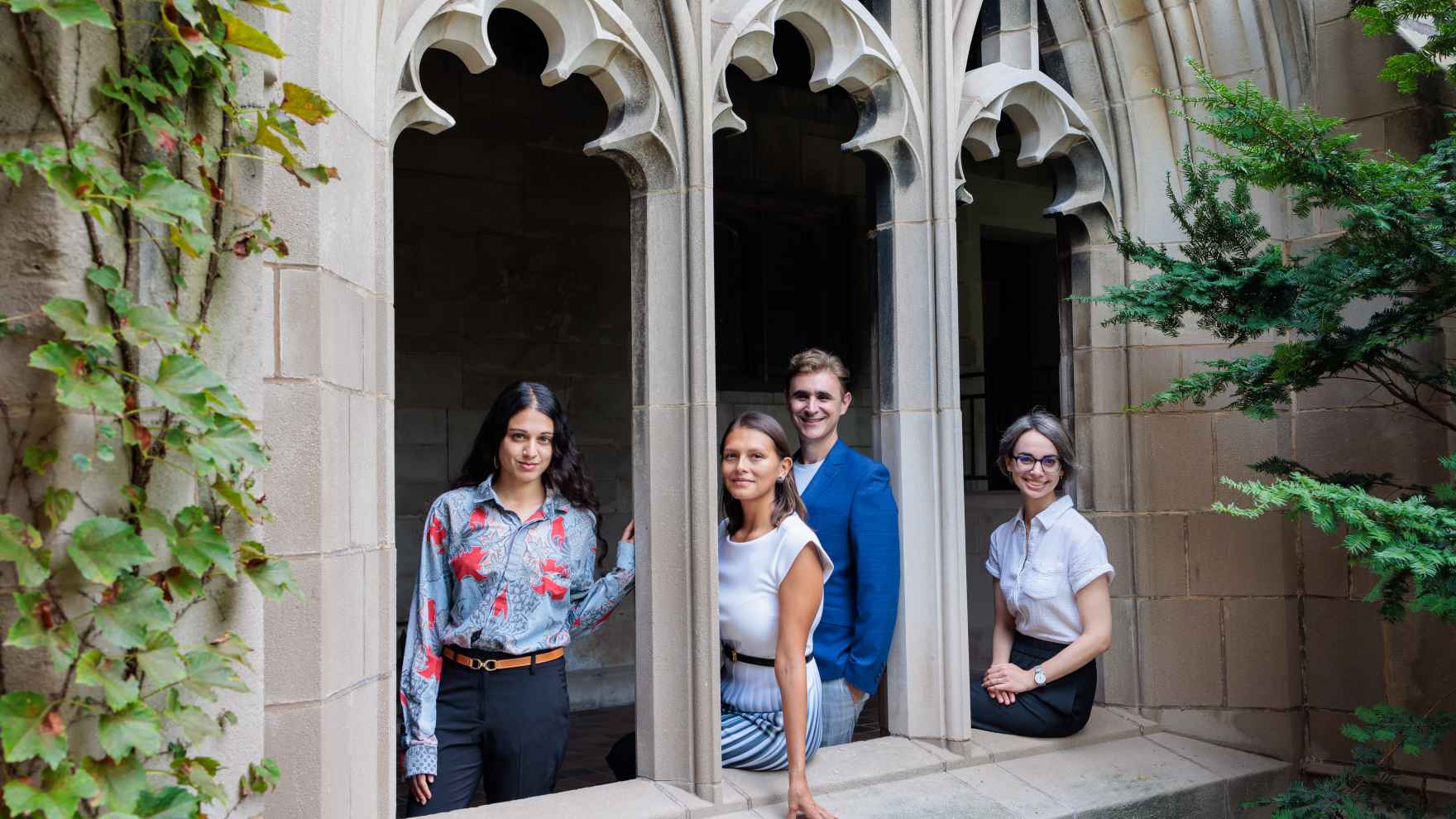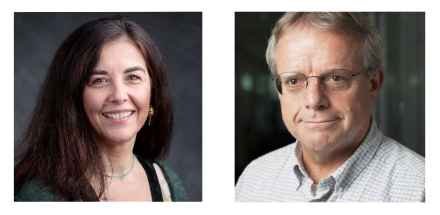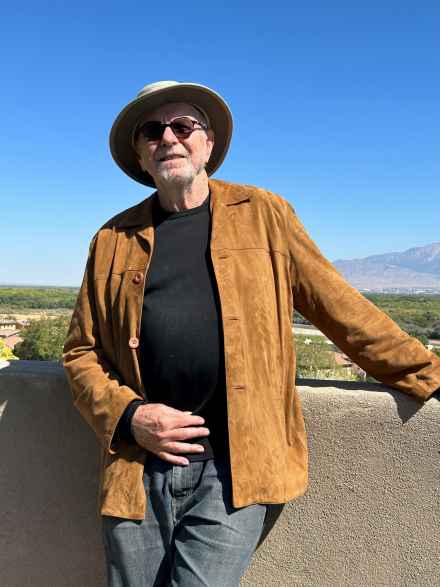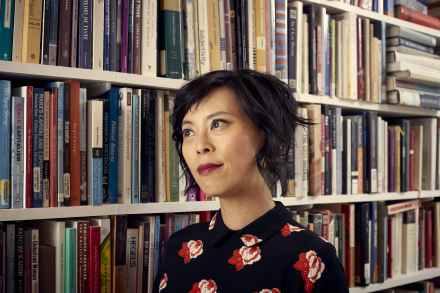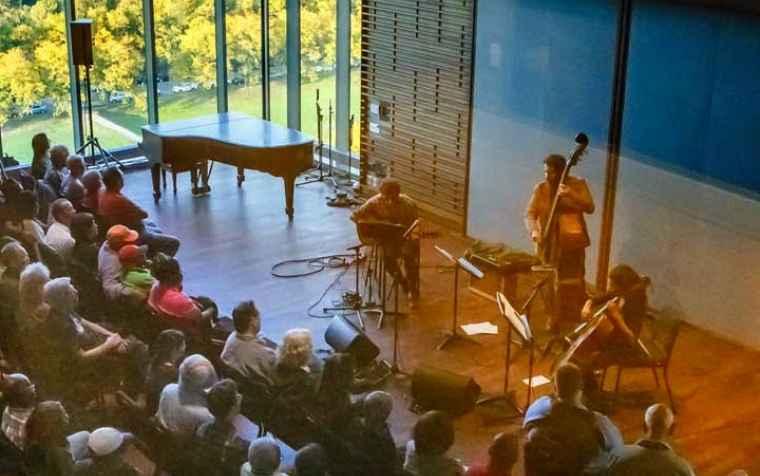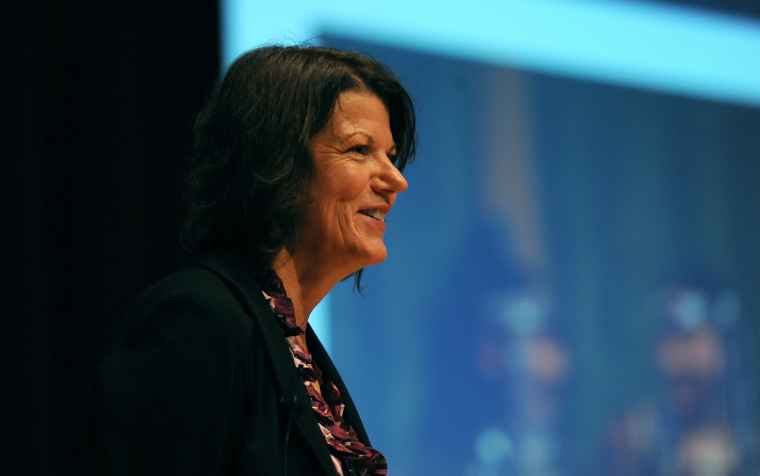Two Humanities Scholars to Receive the Charles J. Goodwin Award
Profs. Christopher Faraone and Sofía Torallas Tovar will receive the Charles J. Goodwin Award of Merit by the Society for Classical Studies as co-editors of the book, The Greco-Egyptian Magical Formularies (2022) in January 2024. It is rare for this prestigious award to be given for a co-edited volume or for one concerned with papyrological texts, a subfield of classics, according to Faraone and Torallas Tovar.
“With their project, Professors Faraone and Torallas Tovar have established the study of ancient magic on an entirely new footing,” said Clifford Ando, David B. and Clara E. Stern Distinguished Service Professor in the Departments of Classics and History and the College and chair of Classics at UChicago. “It's not just that their edition observes the best modern principles of textual criticism. Their project advances new ways of treating any texts, in which format and medium also play a fundamental role in interpretation.”
Modern Language Association to Honor W. J. T. Mitchell with Lifetime Scholarly Achievement Award
Prof. W. J. T. Mitchell may be the only living iconologist on the planet. He draws on ideas from ancient and modern mythology that treat pictures as living things. As a historian of cultural images, Mitchell studies the relationship between words and images, cultivating visual and verbal literacy.
For his immense scholarly work in iconology and his 42 years as the editor of UChicago’s well-known humanities journal, Critical Inquiry, Mitchell will receive the Modern Language Association’s Award for Lifetime Scholarly Achievement on Jan. 5, 2024, in Philadelphia. It is also a fitting finish to his teaching career at UChicago, which officially ends in January 2024. The Lifetime Scholarly Achievement Award is given every three years. Previous winners include well-known professors Maynard Mack at Yale University; J. Hillis Miller at University of California, Irvine; Susan Gubar at Indiana University; and René Girard at Stanford University.
Prof. Sianne Ngai to Address Relationship Between Aesthetic Judgments, Capitalism in Humanities Day Keynote
An original literary scholar, Sianne Ngai has centered her work on unspooling the social and political histories that form the aesthetic judgments of novels, movies and photographs, as well as the lesser art forms of show tunes, YouTube videos, rubber duckies, stainless-steel banana peelers and emojis.
The author of three serious, philosophically dense books with deceivingly innocent titles, “Theory of the Gimmick: Aesthetic Judgment and Capitalist Form” (2020), “Our Aesthetic Categories: Zany, Cute, Interesting” (2012), and “Ugly Feelings” (2005), she taps into American’s ordinary use of language to uncover political complexity and ambivalence.
Gaming Islam
The protagonist of Inkle Studio’s science-fiction adventure game Heaven’s Vault is an archaeologist by the name of Aliya Elasra who was born on the planet of Elboreth in a faraway nebula. Her name is Arabic, she wears a headscarf, and her planet looks a lot like the old quarter of an Arab Middle Eastern city. But Aliya is not Muslim and neither Islam nor any other earthly religion features in the game.
One of the central characters in Infinity Ward’s first-person shooter Call of Duty: Modern Warfare is Farah Ahmed Karim, the commander of a liberation force battling the Russian occupation of her homeland. Karim’s name is also Arabic. The chemical attack on her city, her torture in prison, even the furnishings in her family home look like they were lifted from portrayals of the Syrian war. But Karim comes from Urzikstan, a fictional Caucasus country bordering the Black Sea whose name is probably a mashup of Uzbekistan and Kyrgyzstan, neither of which have sizable Arab populations.
What do video game characters like Aliya Elasra and Farah Karim teach us about the representation of Islam and Muslims in video games and the entertainment industry more broadly? Two professors at the University of Chicago, Alireza Doostdar (Divinity School) and Ghenwa Hayek (NELC), have embarked on a collaborative multimedia initiative sponsored by the Martin Marty Center to explore these questions.


